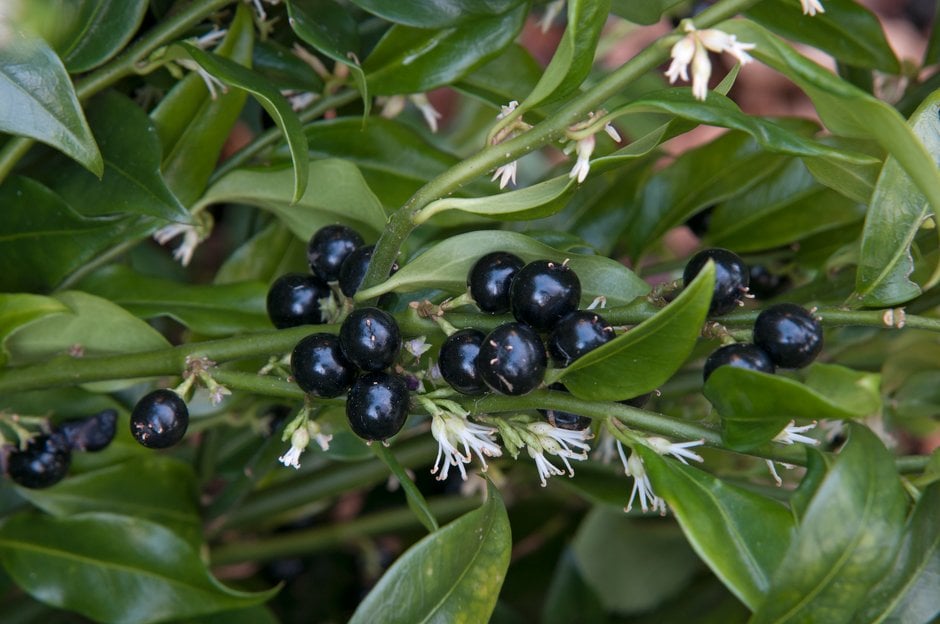Size
Ultimate height
1–1.5 metresTime to ultimate height
5–10 yearsUltimate spread
1–1.5 metresGrowing conditions
Moisture
Moist but well–drainedpH
Acid, Alkaline, NeutralColour & scent
| Stem | Flower | Foliage | Fruit | |
| Spring | Green | |||
|---|---|---|---|---|
| Summer | Green | Black | ||
| Autumn | Green | |||
| Winter | White | Green |
Position
- Full shade
- Partial shade
Aspect
West–facing or East–facing or North–facing
Exposure
Sheltered Hardiness
H5Botanical details
- Family
- Buxaceae
- Native to GB / Ireland
- No
- Foliage
- Evergreen
- Habit
- Bushy
- Potentially harmful
- Fruit are ornamental - not to be eaten. Wear gloves and other protective equipment when handling Pets: Fruit are ornamental - not to be eaten - see the HTA guide to potentially harmful plants for further information and useful contact numbers
- Genus
Sarcococca are compact, sometimes suckering evergreen shrubs with simple, leathery leaves and tiny, fragrant creamy-white flowers in winter or spring, followed by red, purple or black berries which may persist into the following winter
- Name status
Correct
- Plant range
- China
How to grow
Cultivation
Grow in moderately fertile, moist but well-drained, humus-rich soil in shade. Full sun may be tolerated when planted in damp soil. Also tolerant of atmospheric pollution, dry shade and neglect. Find out more by watching Nick Turrell giving you 3 Good reasons to grow sweet box
Propagation
Propagate by semi-hardwood cuttings in late summer or propagate by seed sown in containers outdoors in autumn or spring
Suggested planting locations and garden types
- City and courtyard gardens
- Cottage and informal garden
- Wildlife gardens
- Low Maintenance
- Hedging and screens
Pruning
Pests
Generally pest-free
Diseases
May be susceptible to honey fungus
Get involved
The RHS is the UK’s gardening charity, helping people and plants to grow - nurturing a healthier, happier world, one person and one plant at a time.
